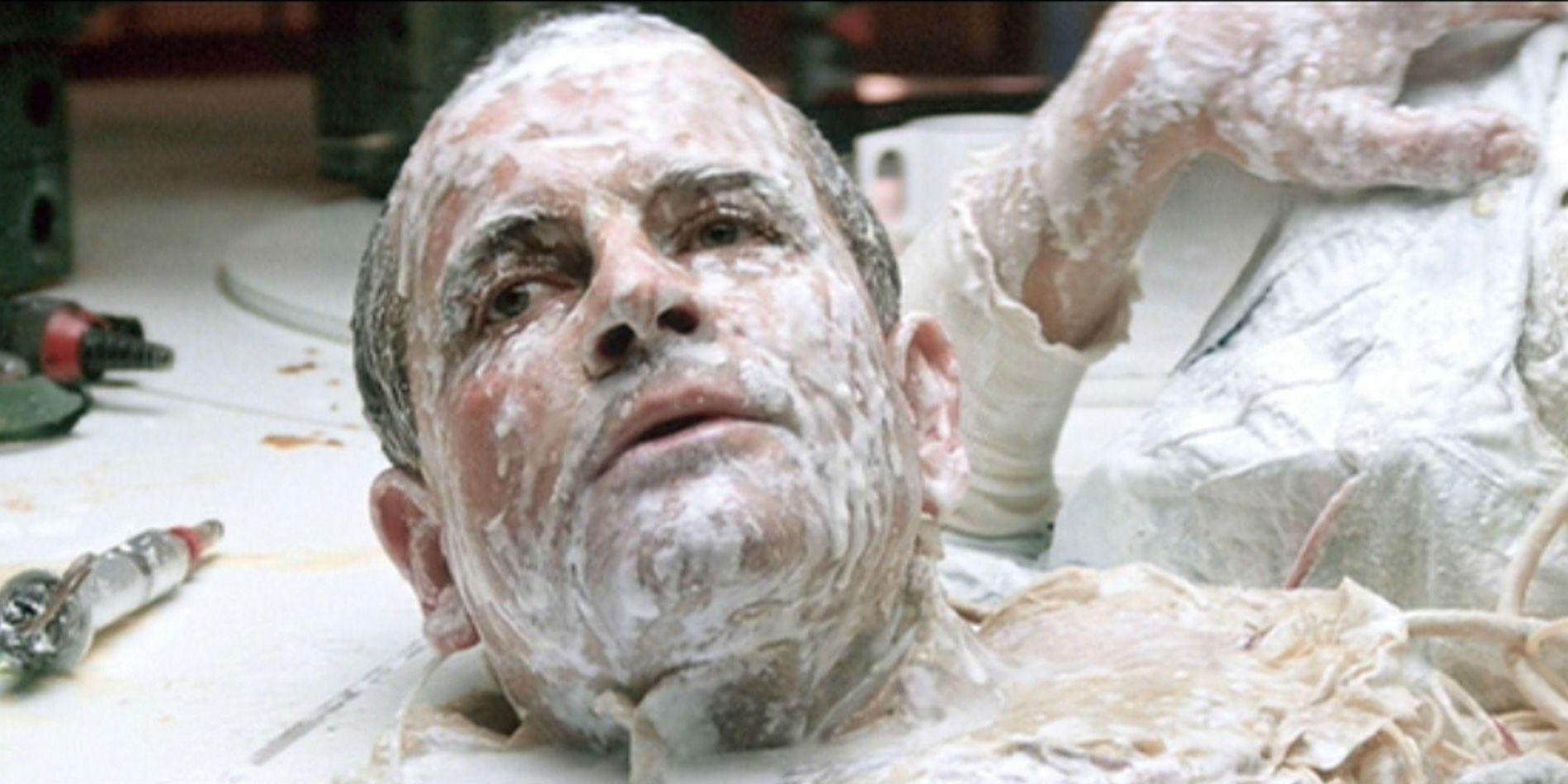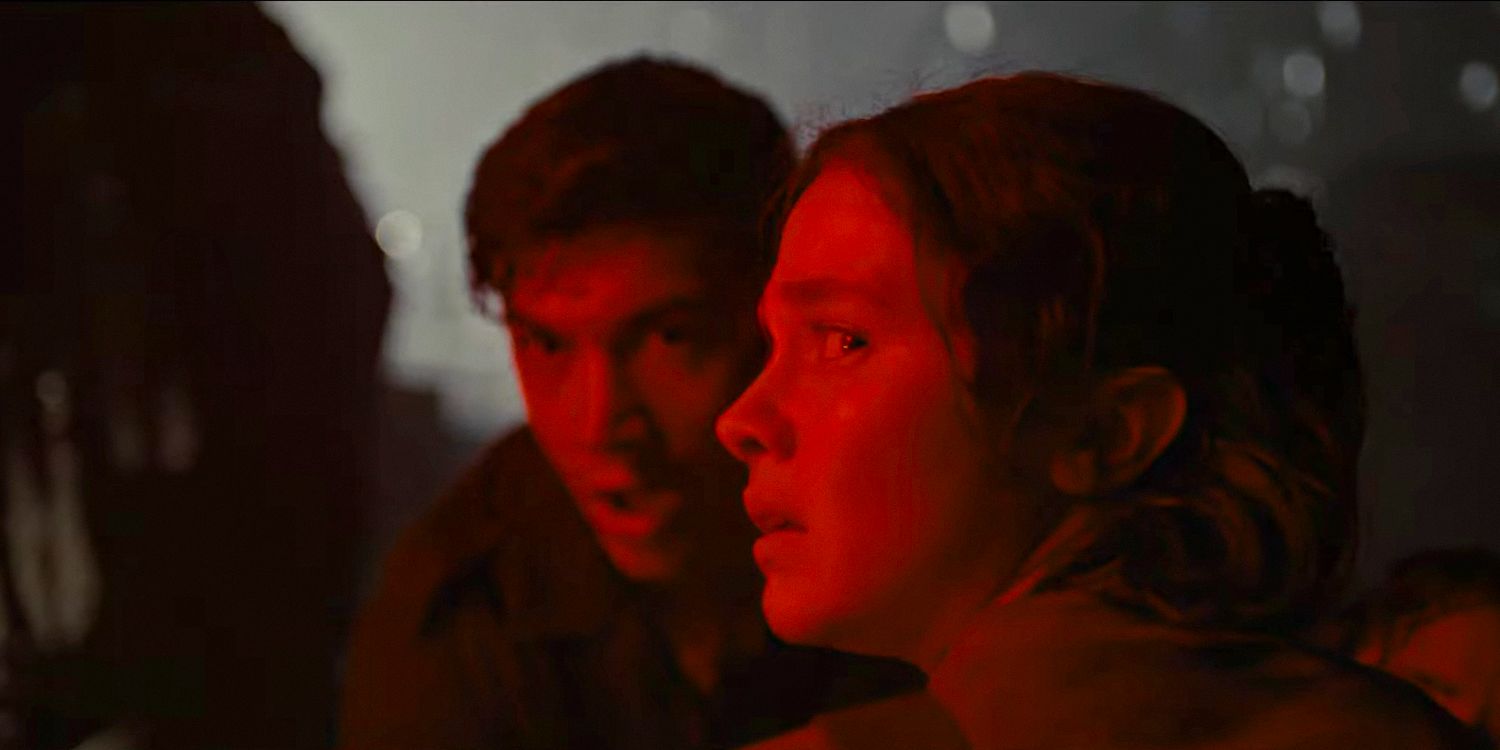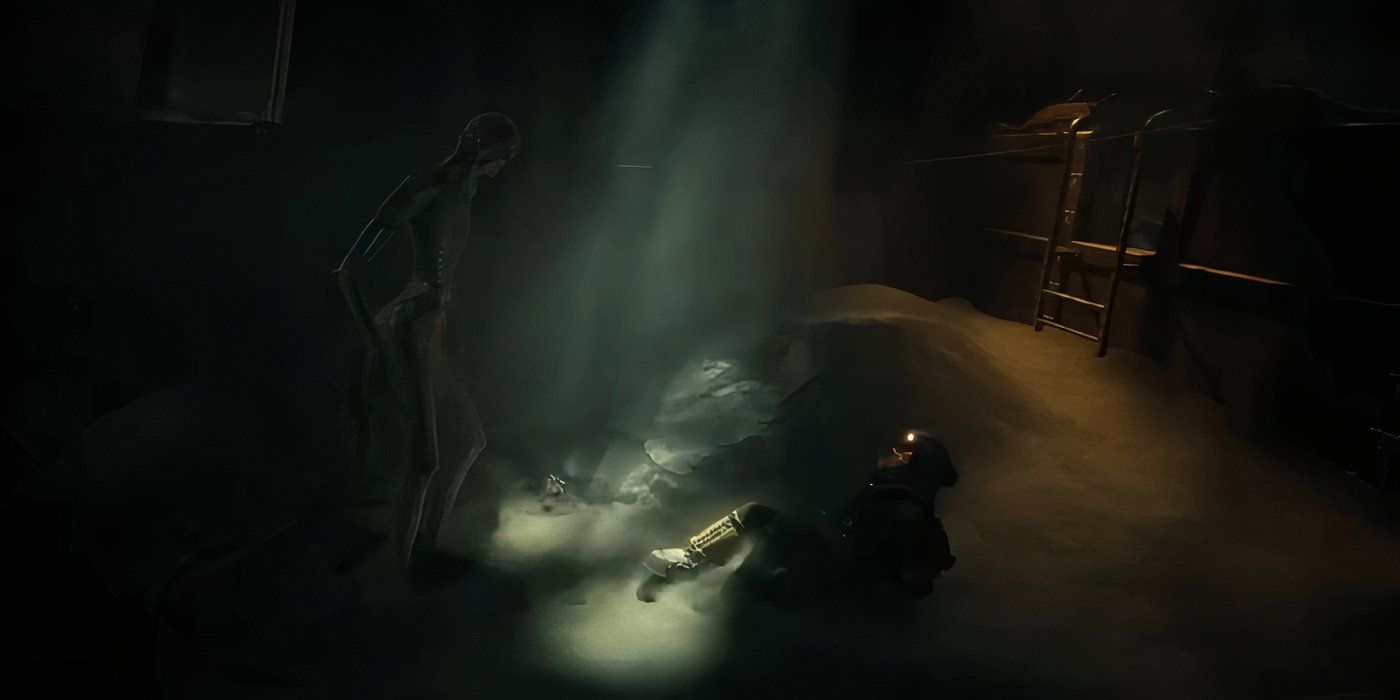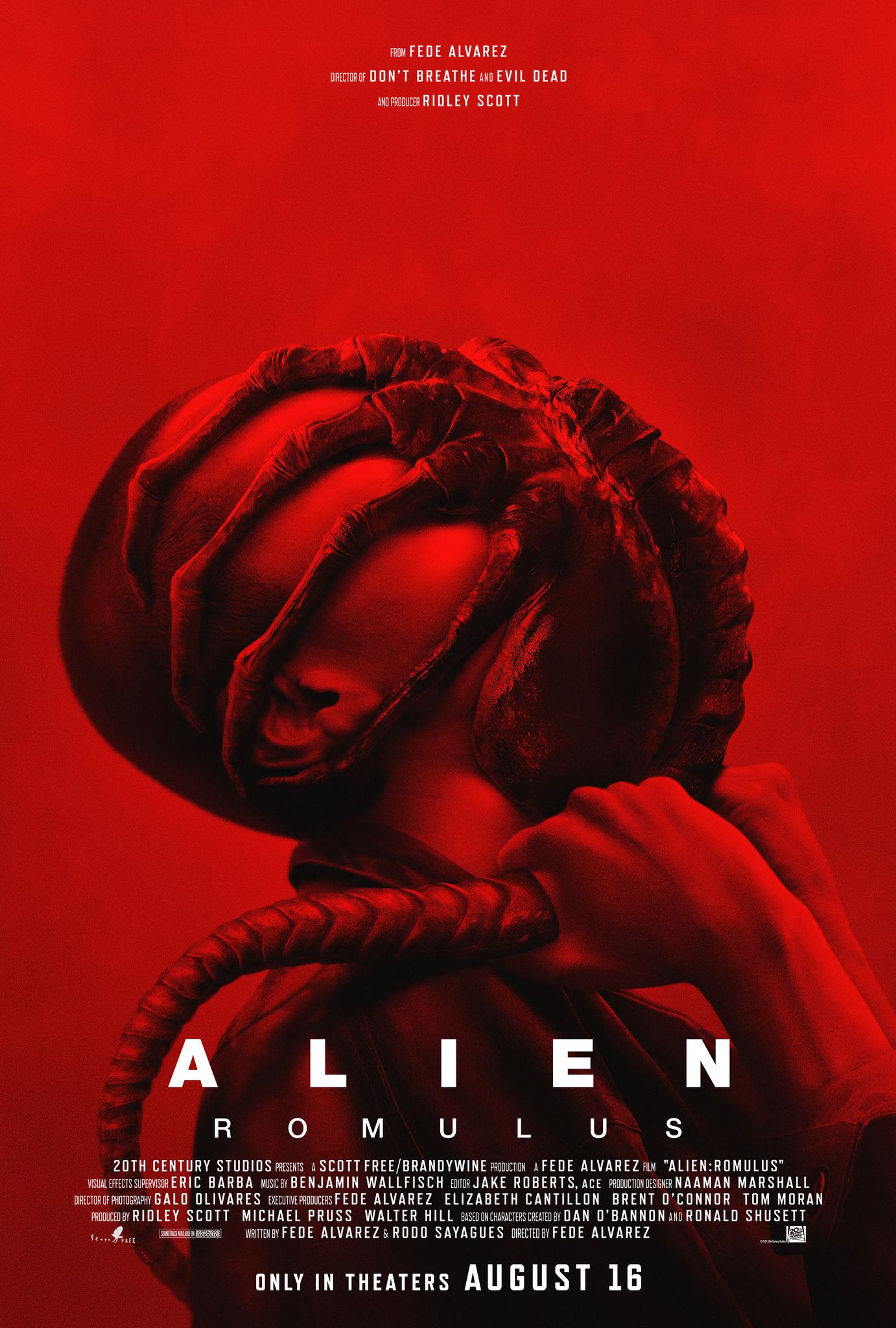Alien: Romulus Ending Explained
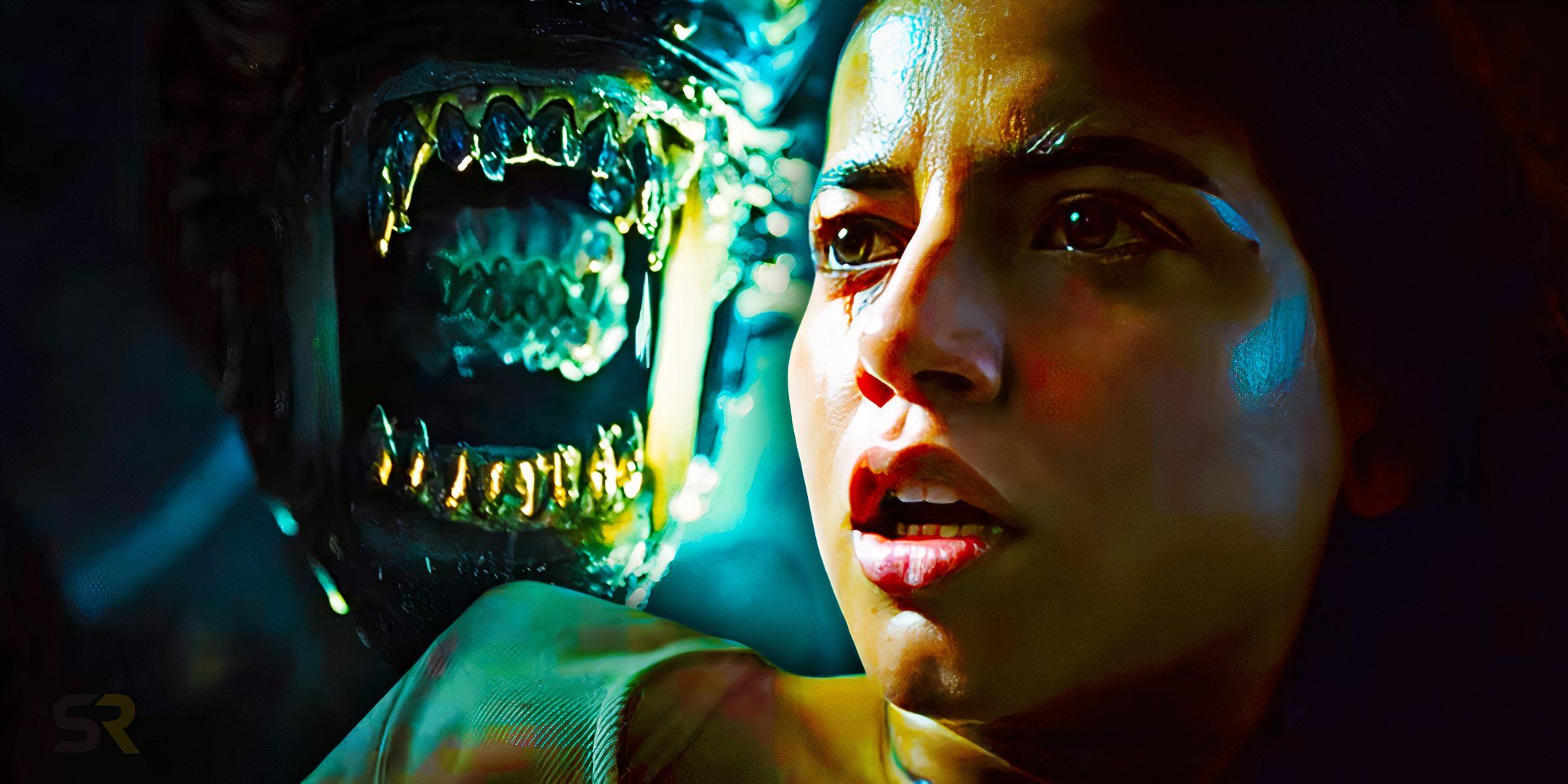
Directed by Fede Alvarez, Alien: Romulus’ ending leaves the door open for more to come in the Alien movie franchise. The film is set in the intervening years between Alien and James Cameron’s Aliens. Alien: Romulus features a new cast of characters who venture to an abandoned spaceship in a bid to retrieve cryo fuel to travel the Yvaga system. What awaits them is the Xenomorph Ripley threw out of the ship in the original movie, which had laid eggs that attacked Rain, Andy and their friends. Rain puts Kay in status to protect her and her unborn child.
But Kay had already injected herself with the Prometheus formula, which led to an advanced pregnancy and birth to a Xenomorph/human hybrid that killed her and severely injured Andy. Desperate to save her and her synthetic brother, Rain fights with the hybrid offspring before releasing the cargo bay and sending him out into space. Rain vows to fix Andy and puts him and herself into cryosleep, putting the ship on an autopilot course to the Yvaga system, unknowing whether they’ll actually make it there or not. Before she does, Rain records an entry into the ship’s logs.
Is Alien: Romulus’ New Xenomorph Offspring Still Alive?
It Was Thrown Into Space, But That Doesn’t Mean It’s The End
The Xenomorph offspring hybrid was thrown out of the ship’s cargo bay by Rain, which suggests he’s done for. However, the creature from the first Alien movie survived being sent out into space, so it’s possible the offspring creature will live on as well. The Xenomorphs are nothing if not adaptable creatures who can seemingly survive pretty much anything.

Related
Alien: Romulus Review – Horrifying Sci-Fi Actioner Has The Best (& Worst) Of The Alien Franchise
Somewhere between Alien & Aliens — fitting given its place in the timeline — Romulus serves up blockbuster-level action & visceral horror all in one.
If Big Chap managed to live for years in space until it was picked up by the spaceship in Alien: Romulus, then it stands to reason the hybrid can do the same. It’s also possible the Xenomoroph offspring has certain mutations that give him the ability to not only survive, but thrive in space. It wouldn’t be surprising if the offspring creature reappeared in another Alien sequel down the line.
Rook’s Prime Directive & Prometheus Connection In Alien: Romulus Explained
Rook Is Based On The Likeness Of The Late Ian Holm, Who Played Ash In The First Film
Rook was the Renaissance ship’s synthetic science officer, who was partially destroyed during the initial Xenomorph rampage that killed the crew. Rook was adamant about his prime directive, and with an upgrade to Andy’s system, convinced the younger synthetic of it, too. That prime directive was to retrieve the Xenomorph to develop a formula called Prometheus 5, which would advance human evolution and make humanity strong enough to survive space. It would also create immunity to diseases that have ravaged the colony populations, such as Rain’s parents, who died from lung disease contracted from the mines.
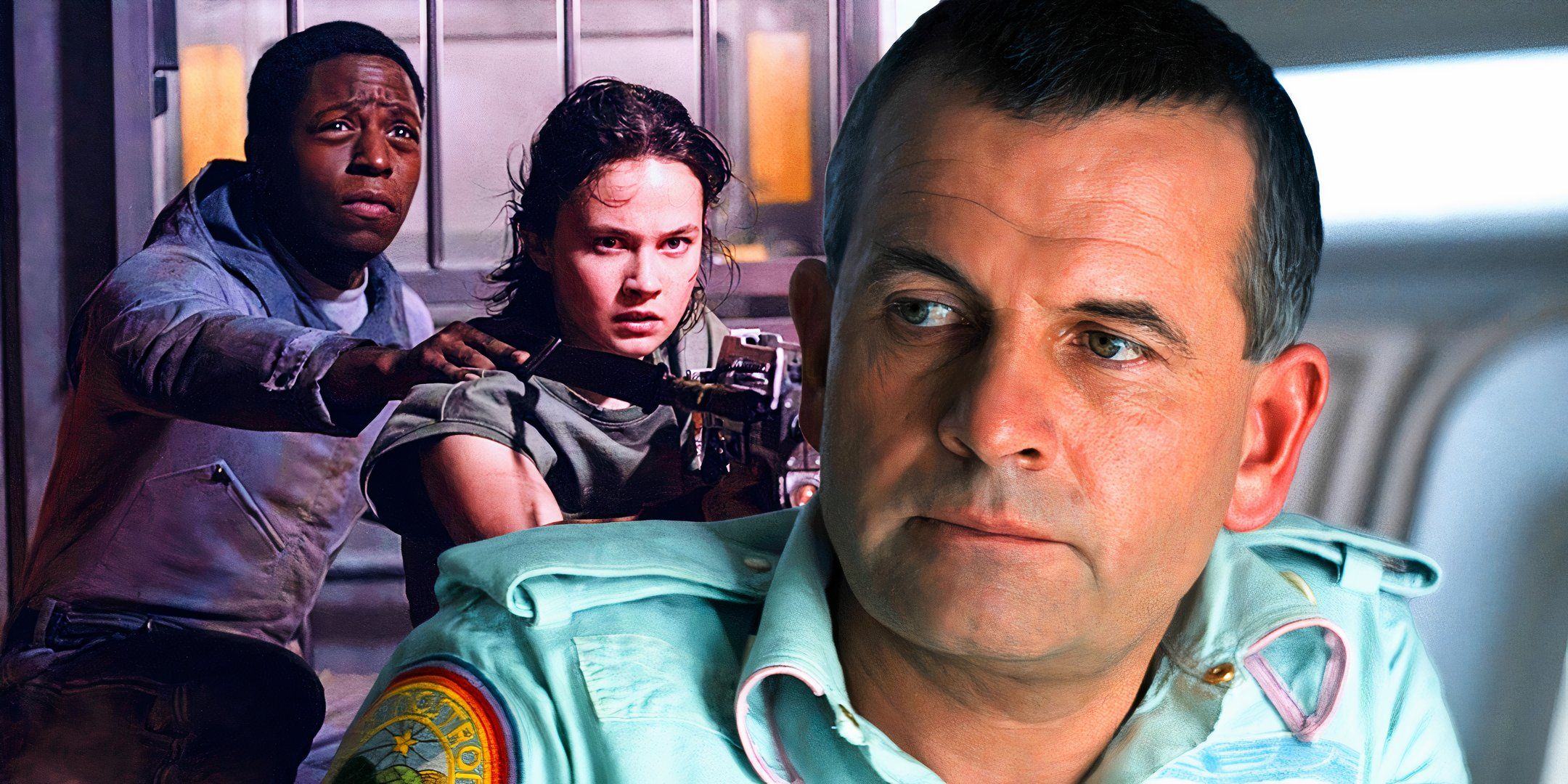
Related
Ian Holm’s Role In Alien: Romulus Explained
Alien: Romulus includes a role for original Alien star Ian Holm, who played Ash in the 1979 film. Here’s his character and connections explained.
Rook’s prime directive put the Weyland-Yutani corporation’s objectives above the lives of the humans onboard. While attempting to advance human evolution, the prime directive was discarding the people who already existed. As such, the prime directive ignored the humanity of the characters, which put Andy in an odd position considering his original prime directive was to ensure Rain was safe and protected. And despite the Xenomorphs being volatile, Rook was not above sacrificing Rain and company just to advance experimental research that itself was dangerous.
The black goo has gone on to be further developed in the years since
Prometheus
’ events took place.
Prometheus 5, which Kay injected herself without knowing its full capabilities, is responsible for creating the Xenomorph hybrid, and its name connects directly to the Alien prequel Prometheus, which included a similar (if not the same) black goo that was capable of mutating DNA and creating new life. The Engineers may have wanted to eradicate humanity, but the Prometheus 5 formula indicates the black goo has gone on to be further developed in the years since Prometheus’ events took place. It’s still creating new life from the old, even if the hybrid did end up killing Kay after being born.
Rain & Andy’s Relationship In Alien: Romulus Is Unique To The Franchise
It Showcases Andy As Part Of Rain’s Family
Rain and Andy had an interesting relationship. As a synthetic, Andy was programmed to look after Rain in the absence of her parents. However, Rain treated Andy as more of a little brother; she took care of him just as he took care of her. It was, generally speaking, a very familial relationship — one that others, including Rook and Bjorn, didn’t understand. Typically, synthetics, like Rook, valued the prime directives embedded by Weyland-Yutani over genuine connection with humans. While synthetics weren’t programmed to kill people directly, there was a rift between them and humans that created some tension.
Andy and Rain aren’t the only siblings in the film. Tyler and Kay are siblings, and Bjorn is their cousin. Sibling relationships act as a central theme in the film, as each sibling makes decisions based on these dynamics.
Rain and Andy’s relationship, which is at the heart of Alien: Romulus, feels like an anomaly when comparing it to others. They genuinely cared for each other, and, though Rain flirted with the idea of going to the Yvaga system and leaving Andy behind (they didn’t accept synthetics), her love for her brother overpowered that decision in the end. When Andy’s prime directive changed, it’s like Rain began to see the humanity in him that was erased in the upgrade. It made her double down on wanting to protect Andy. Their relationship is based on trust and love, a rarity.
How Alien: Romulus’ Ending Sets Up Another Alien Sequel
Rain & Andy Are In Cryosleep & Headed For Yvaga
Alien: Romulus may not have a post-credits scene, but its ending certainly leaves things open for further exploration in a sequel. Rain’s survival means her story isn’t necessarily over. Anything could happen while she and Andy are in cryosleep. What would be interesting is if an Alien: Romulus sequel explored Rain and Andy’s arrival to Yvaga III. It was revealed the space colony doesn’t take kindly to synthetics, which suggests the siblings will run into some trouble when they arrive. Rain promised to fix him, so a sequel could follow her journey to do just that.
Everyone Who Died In Alien: Romulus (In Order) | |
Navarro | Chestbursted by the Scorched Xenomorph. |
Bjorn | Body melted by acidic blood |
Tyler | Skull crushed when headbitten by a Xenomorph |
Kay | Feasted upon by the Offspring. |
Rook | Destroyed when Renaissance station collided with LV-410’s asteroid belt. |
What could transpire on Yvaga is a mystery, and the way Romulus ends reveals the potential for more Xenomorph encounters. What’s more, Rain could wake up from cryosleep and come face to face with employees from Weyland-Yutani. Whatever happens, Rain’s survival and Andy still being alive, though injured, creates opportunities for future stories. Theirs is one of the more interesting relationships of the Alien franchise, and it would be a shame if their story ended with Alien: Romulus, especially since their fates are up in the air.
The Real Meaning Of Alien: Romulus’ Ending
Corporations Manipulate Humanity
Although the Xenomorphs are considered perfect species, Alien: Romulus’ ending posits that humanity has still got a fighting chance. They may not be able to mutate quickly, nor are they strong enough to easily live in space, but humans are still powerful in their own right. What’s more, the film’s ending underscores the strength of a human/synthetic dynamic that isn’t solely based on the prime directive of a corporation. Romulus showcases Rook as wanting to do what’s best for humanity without realizing that Weyland-Yutani isn’t exactly looking out for them, either — they’re looking out for themselves.
Alien: Romulus also highlights the various ways humanity can be exploited by corporations. Weyland-Yutani, through Rook, tried to use Andy for their own ends, and the characters were essentially punished for wanting a better life for themselves, sacrificed for the sake of capturing Xenomorphs. The film’s ending doubles down on choosing one’s humanity over heartless prime directives. Rain came to that same conclusion once she realized that leaving Andy behind was not in her or his best interest, even if it meant potentially giving up starting a new life. It wouldn’t have meant anything anyway without him.
How The Alien Romulus Ending Was Received
Critics & Audience Members Praised It As A Return To Form
Alien: Romulus was a return to form for the franchise according to most critics and audience members. On Rotten Tomatoes, critics certified the film fresh with an 80% approval rating and audience members gave it a high 85% Popcornmeter score. One of the audience reviewers on RT wrote, “Refreshing. Great call back to the original 2 films but still does something totally new. This is how you you keep a franchise alive.“
As for the professional critics, Peter Travers of ABC News praised the film, despite writing that it “shamelessly feeds off the DNA of both sci-fi horror classics” (Alien and Aliens). However, he had high praise for the film’s ending, writing, “After the thundering last third of the film, which turns up the terror to 11, you’ll want to bolt for the shower to get the goo off. Yup, it feels that tangible.“
However, fans went even deeper into the Alien: Romulus ending on Reddit. In a thread dedicated to it, the OP wrote how the ending with the Offspring was “genuinely terrifying and unnerving, which is rare for modern horror films.” One person responding broke it down more concerning the black goo’s properties, writing, “It actually indirectly provides answers for questions regarding what some consider “inconsistencies”in Prometheus and Covenant … in how the goo behaves on the human body.”
Source link

